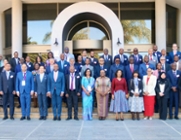Working locally to deliver development
Recently the press has been full of revelations of wrong-doing in the international aid sector, particularly staff at Oxfam during their response after the Haiti earthquake, but also in Chad. Since these revelations, there have been investigations or resignations in two other charities, and in the United Kingdom, the Charity Commission is instituting a statutory enquiry into Oxfam; and both DFID and the European Commission have threatened to withhold funding if certain safeguards are not implemented. There have also been resignations of senior staff in two multi-lateral organisations.
Apart from these allegations, the international development response to the earthquake in Haiti, although in excess of $10 billion, has long been dogged with controversy, with the Centre for Economic Policy and Research highlighting the limited distribution of funds to Haitians. It has been estimated that out of all that money, less than 1% of the aid ended up in Haitian hands.
Questioning the development paradigm
When one looks at these developments one can ask what is going wrong with development? Is it time to question the development paradigm? Development organisations need to move away from any model of a ready-made solution being ‘parachuted in’ to solve local problems, sending in ‘international experts’ who neither know, nor understand local contexts. Some of these developmental workers create an ongoing long term dependency on aid and, worse still, as in the Oxfam case, exploit the dependency in the short term for personal and nefarious gain.
Values and ways of working
While the recent problems faced by Oxfam are complex and could occur in other situations, CLGF has a very clear and distinct set of values and ways of working with members and partners.
Firstly, as an organisation we know that we need to acknowledge local contexts and to work together with host country ministries, local governments and local communities to collectively craft a solution.
Secondly, wherever possible, we work with and through local partners in every country where we engage in developmental programmes, working with them to craft their own solutions, which will be sustainable, and can then be shared across other local governments in the region, emphasizing the concept of ‘local solutions for local problems’, and ensuring that capacity is strengthened and dependency is not created.
CLGF has a small office in London and nine regional and project offices across the Commonwealth, all of which employ staff who are from those regions. CLGF will, wherever possible, continue to move the ‘centre of gravity’ from its London office to these regions and offices. We constantly seek ways which will ensure that more funds are spent for the benefit of our members and less on our own operational costs.
Tangible benefits
Working through local members, local partners and local staff does create a different dynamic – one which is more likely to reap tangible benefits on the ground and limit any establishment of dependency or diversion of funds from its intended purpose.
CLGF exists for the benefit of its members. In the wake of these dreadful revelations across the developmental sector, it is good for us to reaffirm our accountability and commitment to our members, the communities they serve and to the members and donors who make our work possible.
Dr Greg Munro – CLGF Secretary-General
February 2018





